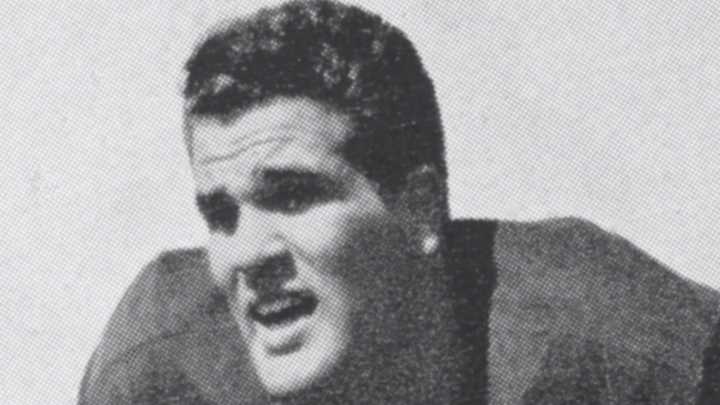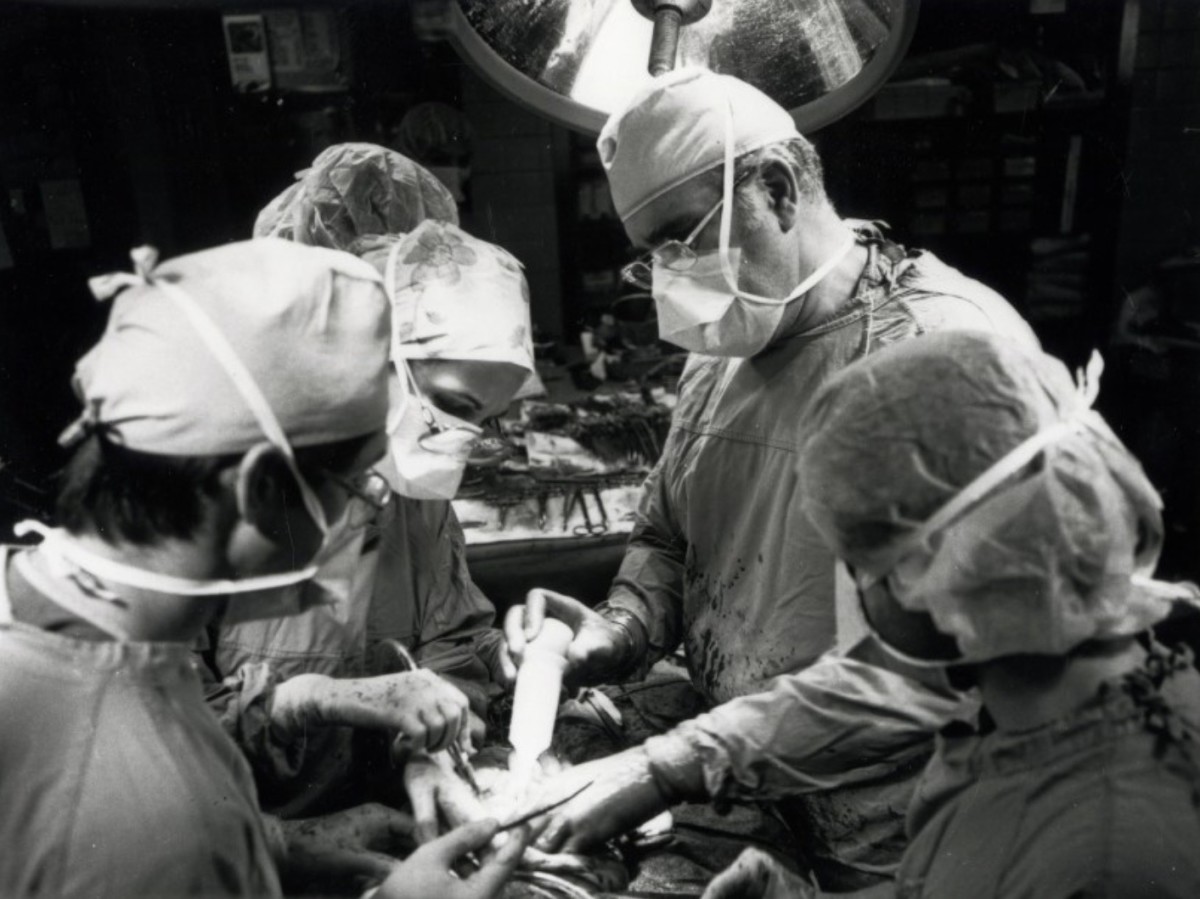Cal Football: Dr. John Najarian, Famed Surgeon and one of Pappy's Boys, Dies at 92

Former Cal offensive lineman Dr. John Najarian, one of “Pappy’s Boys,” who went on to become a pioneer in organ transplantation surgery, died this week in Stillwater, Minnesota. He was 92.
Najarian played four seasons for Cal in the late 1940s, the final two for new Bears coach Pappy Waldorf. Cal went 19-2 those two seasons, winning the Pacific Coast Conference co-title during Najarian’s senior season of 1948 before playing in the Rose Bowl.
“Dad will be missed by not just his family, but by so many,” Peter Najarian, one of his four sons, wrote on Twitter. “(He was) a giant in stature as well as in his field of medicine.”
The outpouring of tributes on social media referred to Najarian as “a legend” and “a remarkable human being.”
A 6-foot-3, 250-pounder, Najarian graduated from Cal in three years, then played his final football season while attending medical school at UC San Francisco.
"The two weeks leading up to the Rose Bowl were when my med school classmates spent their time studying for finals, which were very important and very difficult in the first year," Najarian reportedly said in an article published in 2007 in the Cal Sports Quarterly. "So, I went to the Rose Bowl with a suitcase full of books, which I never opened, needless to say.”
As accomplished as Najarian was on the football field, his greatest achievements came in medicine.
He worked for decades at the University of Minnesota, where he became known for his “delicate transplant surgeries on children,” according to a story in the Twin Cities Pioneer Press.
“He was courageous in his pursuit to advance medicine,” said Dr. Sayeed Ikramuddin and Dr. William Payne of the university’s surgery department in a joint statement. “Wanting to provide solutions for the most complex medical situations, he worked to tackle them head-on. Because of Dr. Najarian’s commitment to patient care, those who had little hope for survival went on to lead long, healthy lives.”
Notable among his patients was Jamie Fiske, who was an infant in 1982 when she received a liver transplant at the University of Minnesota. Her case led to the development of a national system of organ procurement to match donors to recipients, according to CBS Minnesota.
Najarian became the second recipient of Cal's Glenn T. Seaborg Award in 1996. The honor is named after the former Cal chancellor and 1951 Nobel Prize-winning chemist and presented annually to a former Cal football player for his career accomplishments while representing the honored Cal principles and traditions of excellence in academics, athletics, leadership and attitude.
Born in Oakland in 1927 to Armenian immigrant parents, Najarian was honored in 2004 with the Medawar Prize, a prestigious award for outstanding achievement in organ transplantation.
It was during his time as a heart surgeon for the U.S. Force, according to the Pioneer Press, that Najarian become fascinated with the prospect of performing organ transplants.
“This was the thing that drove me the most,” he said in a recorded interview for the University of Minnesota. “To find a way that we could in fact transplant organs from one individual to another. Wouldn’t this be wonderful if we could do it.”
In 1967 he was hired to lead Minnesota’s medical school department of surgery as its chair, a position he held until 1993. He authored hundreds of articles in medical literature, trained doctors from throughout the world and was a founding member of the American Society of Transplant Surgeons, according to the Pioneer Press story.

Steve Campen, 51, of Rosemount, Minnesota, said in an interview he was near death at age 27 when he received his first kidney transplant. Najarian performed the surgery.
“If it wasn’t for what he built at the U, you wouldn’t be talking to me now,” Campen said. “What struck me about him more than anything else was, here’s this guy with a physical presence with very large hands and you thought, how can he be a surgeon?
“He exhibited a confidence without arrogance that told you that you’ve got this and you will be fine. Because of what he did for me, I’ve been able to experience so much in life, traveling to parts of the world I never thought I’d see, meeting my wife, becoming a father of two children — and none of that would have existed without him.”
Najarian’s legacy was somewhat tainted in 1992, the Press Pioneer wrote, when the U.S. Food and Drug Administration ordered the University of Minnesota to halt all sales of ALG, anti-rejection drug Najarian helped develop. A federal investigation alleged that the university violated federal drug-testing rules and profited from its sales.
The investigation cost Najarian his position at Minnesota but in 1996 he was acquitted of all charges by a jury that determined the FDA failed to prove its case. Some medical experts and patients reportedly questioned the motives of the FDA, arguing that some had lost sight of how effective the drug was, CBS Minnesota said.
“He knew he was right,” son Dave Najarian was quoted as saying in the Minneapolis Star Tribune. “He was never yelling about it or making a fuss about it. He was just happy that the drug he developed saved so many lives.”
Najarian and his wife, Mignette, were married for 67 years before her death last year. His second son, Paul, played football at Cal under coaches Roger Theder and Joe Kapp and died in 2014. Son Peter played football at Minnesota and later in the NFL.
.
.
Follow Jeff Faraudo of Cal Sports Report on Twitter: @jefffaraudo
Click the "follow" button in the top right corner to join the conversation on Cal Sports Report on SI. Access and comment on featured stories and start your own conversations and post external links on our community page.
